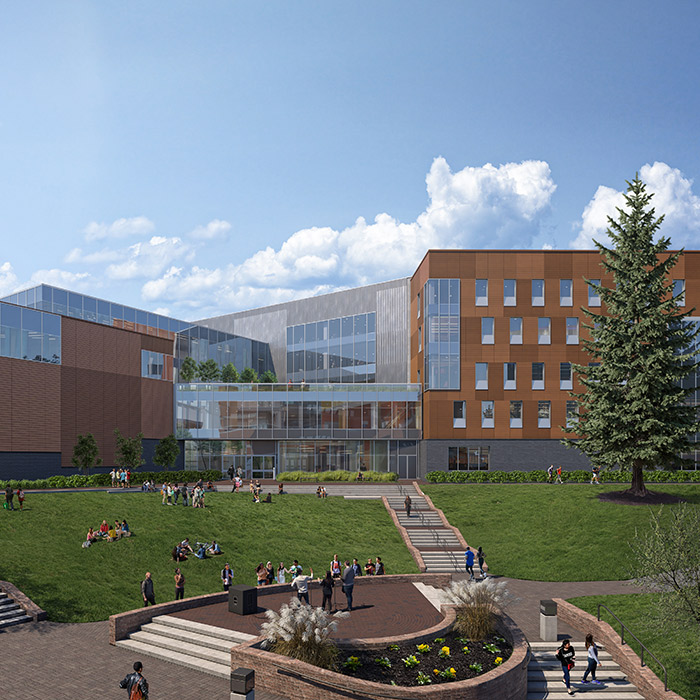Geothermal Energy at TU
What Is Geothermal Energy?
Geothermal energy taps into the Earth’s natural heat to provide renewable heating
and cooling. Using underground temperatures that remain relatively constant year-round,
geothermal systems can heat buildings in winter and cool them in summer, while reducing
carbon emissions and cutting energy costs.
At the heart of these systems are ground-source heat pumps (GSHPs), which circulate fluid through a series of underground pipes. These systems
are low-maintenance and highly efficient.
Geothermal at Towson University
Towson University is embracing geothermal energy as part of its commitment to sustainability,
energy efficiency, and climate action.
In December 2024, TU installed geothermal test wells outside Stephens Hall. These
wells, drilled to depths of 500 and 800 feet, are helping evaluate the feasibility
of long-term geothermal energy use across campus.
The renovation of Smith Hall is paving the way for Towson’s first operational geothermal
system. The updated building will feature dedicated heating and cooling units powered
by geothermal energy, a key step toward achieving LEED Gold certification for green
design and construction.
These efforts support TU’s larger goal of achieving carbon neutrality and expanding
the use of renewable energy, including solar.
Where It's Going
The geothermal well field is being installed near Stephens Hall, with underground
piping running through the campus quad to connect to Smith Hall’s mechanical systems.





